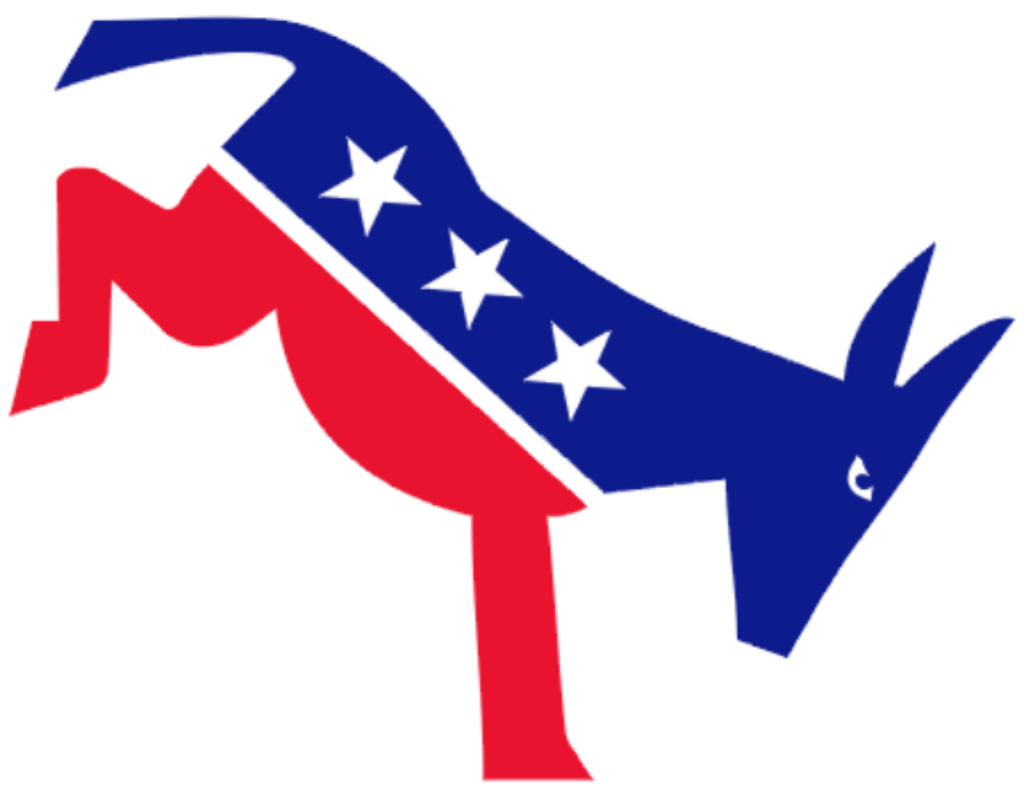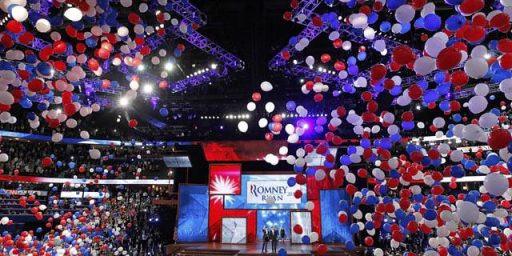Proposals For Superdelegate Reform Objected To By Congressional Democrats
Democrats on Capitol Hill are objecting to the proposed changes in the role of superdelegates in the party's nomination process.

Proposals currently circulating among members of the Democratic National Committee to change the role of superdelegates in the Democratic Party’s nomination process are running into opposition from Democratic Members of Congress, who are currently considered to be among the superdelegates eligible to support and vote for whomever they wish at the quadrennial Presidential nomination convention:b
The controversial issue of “superdelegates” and their future in the Democratic Party led to an angry confrontation on Tuesday night between Democratic National Committee Chairman Tom Perez and House Democrats, according to several lawmakers.
But the members’ angst may not help them since it appears that the DNC is ready to rein in the status of superdelegates, also known as “unpledged” delegates, no matter what lawmakers say or do.
Superdelegates include members of Congress, governors, party elders such as former presidents and vice presidents, DNC members and other assorted “distinguished party leaders.” They made up roughly 15 percent of the delegates during the 2016 convention. Unlike other delegates, they are free to vote for any candidate they want.
The logic is that party leaders immersed in the candidates and issues of the day can provide a guardrail against selecting an “unelectable” nominee for the general election. But the party base loathes this elite class of delegates, saying it stacks the primary process against the wishes of regular voters.
As the article goes on to note, the modern rules regarding Superdelegates in the Democratic Party are an outgrowth of the divisive primary battle between President Jimmy Carter and Senator Ted Kennedy, but they were also influenced heavily by previous Democratic nomination fights such as the 1968 Democratic National Convention, which became famously chaotic for a number of reasons, and the 1972 convention which led to the nomination of George McGovern and President Nixon’s landslide win in the fall. Democrats aren’t the only party with such delegates, of course. Republicans also have a version of superdelegates but they are far smaller in number given that each state is only allocated three each and the position generally goes to party officials or members of the Republican National Committee. In the Democratic Party, though, they play a far more extensive, although not necessarily decisive role. In 2016, for example, there were 712 unbound superdelegates up for grabs. Of those, 570 ended up backing Hillary Clinton, 44 backed Bernie Sanders, and the remaining 96 were essentially unpledged. (Source)
In the end, as had been the case in previous elections, the superdelegates did not end up being decisive to the outcome of the Clinton vs. Sanders nomination fight, but that didn’t stop them from being a point of controversy. To a large degree, Clinton received the bulk of her superdelegate endorsements before voting had even begun in the primaries. This led many supporters of Sanders to object that the system was somehow “rigged” against their candidate in that the superdelegates were acting to make it appear that Clinton’s lead in the delegate count in the early weeks and months of primary voting was larger than it appeared. In the end, of course, Clinton ended up winning a sufficient number of primary and caucus delegates to win the nomination without the aid of the superdelegates, but that didn’t end the issue and the “progressive” wing of the party that has evolved out of the Sanders candidacy has been using its muscle to force the DNC to consider changes in the way superdelegates are treated in future races.
Based on the reports of the meeting between DNC Chairman Perez and some of the top Democratic Members of Congress, it appears the party has narrow itself down to two plans, neither one seems to pass muster with Democrats on Capitol Hill:
During a two-hour-plus meeting with a group of House Democrats at DNC headquarters, Perez laid out two options under consideration for superdelegates by the DNC’s Rules and Bylaws Committee. The rules committee will meet on the issue Friday, and there’s a June 30 deadline for any proposed amendments to the DNC charter, which will be voted on during a key August party meeting, right in the middle of election season.
The first proposal — a product of the “Unity Reform Commission” established at the 2016 convention to “revise and reduce” the role of superdelegates — would create three categories of superdelegates. Some superdelegates would be allowed to vote in the first roll-call vote for the presidential nominee, while others would not.
However, Perez warned members that this proposal wouldn’t win enough backing to be adopted at the August DNC session.
The second option, which Perez supports and which appears far more likely to be enacted, would allow superdelegates to continue to exist, but they couldn’t vote during the first round of the presidential roll-call vote. They could, however, vote during the second round or any subsequent roll call, and they would still be permitted to support any candidate they wanted.
Perez believes this approach ensures that “we have an inclusive party, transparent process, democratic principles, and empowers the grassroots,” a DNC official said.
And that’s what set the House members off, because none of them believe there will be any more than one roll-call vote for the nominee.
In their view, that means elected Democratic officials — who have been put into office by hundreds of thousands or even millions of constituents — won’t play a role in nominating their party’s presidential candidate.
“I believe this decision, if they go forward, is going to do terrible damage to party harmony,” said Rep. Gerry Connolly (D-Va.), who raised his objections with Perez during Tuesday’s dinner. “It disenfranchises the elected leadership of the party. The last time we allowed that to happen was 1972, and we had the worst landslide in our history.”
“I believe that elected officials across the country — Congress and governors — I believe they provide a ballast for the party that we very much need,” Connolly added. “With all due respect to somebody who thinks we don’t need it, when we haven’t had it, Democrats have had disastrous results.”
“I think this is absolutely an insult to us,” said Rep. Bill Pascrell (D-N.J.). “We’re no better than anybody else, but we stand for election. That has to mean something, that has to stand for something. That’s a lot of baloney.”
In an interview, Pascrell said that he told the same thing to Perez during Tuesday night’s closed-door dinner but didn’t like Perez’s retort.
“I didn’t really get a response, just more of an explanation,” Pascrell said. “I got the impression that this is pretty much a done deal with the options they had come up with, which I find difficult to handle.”
At the time of the Democratic National Convention, there was a different plan up for consideration that would have required superdelegates to vote according to the outcome in their respective states. As I said at the time, that proposal didn’t make much sense given the fact that we haven’t seen a party convention in either major party go beyond the first ballot on a Presidential vote in the modern era, and it’s unlikely that we would see a situation like that in the future. In other words, that plan would have essentially rendered superdelegates as entirely meaningless to the process. The same could be said about the second option that Chairman Perez apparently believes is the most likely to pass when the DNC votes on this issue later this year. Barring superdelegates from voting essentially means they most likely would not be voting at all at the national convention. This would be a significant reduction of power for the elected officials and others who make up the Democratic Superdelegates. If that’s the decision the DNC makes, then one wonders what the point is of having superdelegates at all. This would be a significant reduction in power for the elected officials that make up the superdelegates, so it’s not surprising that they are objecting to it.
Additionally, as I noted when I wrote about this issue last month, if Democrats really wanted to reform their nomination process, they ought to be looking at other reforms:
If Democrats wanted to reform their process, they ought to be considering issues that go far beyond the rather irrelevant issue of superdelegates. For example, one of the main reasons that the primary battles in 2008 and 2016 were so drawn out is because current party rules require all states to award delegates on a proportional basis. This means that the candidate who wins the primary doesn’t really get much of an advantage from doing so and the process ends up getting dragged out longer than it ought to be because it becomes harder for a nominee to get the majority they need to win the nomination. Additionally, it seems to be long past time for both national parties to take a long and hard look at the whole idea of caucuses selecting delegates rather than primaries. As I’ve stated before, caucuses are a highly deficient means for selecting a nominee because they tend to lead to far lower participation by voters, don’t allow for early or absentee voting, and require people who may not have the means to do so to attend long party meetings at times that may be inconvenient for them. This is something that both national parties ought to look to, although in the end there isn’t much they can do about it since it’s an issue determined by state law and the preferences of state parties.
Since I’m not a Democrat I don’t necessarily have a dog in this fight, but it seems to me that Democrats would be better off concentrating their reform efforts in this area than in making changes to the superdelegates rules that haven’t really made much of a difference in the outcome of the nomination fight in any of the nomination fights over the past thirty years.




I confess I’m failing to see what problem is solved by eliminating the super delegates.
In theory Republican superdelegates could have saved us from Trump. But in the real world can you see any Republican having the guts to have opposed the base?
@gVOR08:
No, they couldn’t have. As I note in the post the number of “superdelegates” in the GOP is much smaller than in the Democratic Party, Even if all of them had opposed Trump they could not have stopped him from winning the nomination.
@Doug Mataconis:
Yes, as you said in the OP the Republicans had few super delegates. And thank you for that, I’d forgotten they had any. My point is that even if, in theory, they had had a large number of super delegates it would have made no difference. No significant number would have voted to stop Trump. Republicans have spent decades building up their base, they’re not about to oppose that base just to do the right thing.